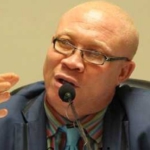
In an increasingly interconnected world, global influence is no longer defined solely by military strength or economic size.
It is shaped by a nation’s presence within international institutions, the visibility of its citizens across global sectors, and its ability to project national identity through excellence, leadership, and innovation. In an era defined by geopolitical competition, shifting alliances, and the rising importance of soft power, nations that successfully project their capabilities internationally shape the global agenda.
Ghana, long admired for its democratic stability, diplomatic sophistication, and as a voice for African liberation stands uniquely positioned to reclaim a more assertive place on the world stage.
From the bold diplomacy of the 1960s led by Osagyefo Kwame Nkrumah to renewed global visibility in the early 2000s, Ghana has demonstrated an ability to lead well beyond its size. Today, the global landscape provides yet another opportunity for the country to leverage its most strategic resource: its people.
Across continents and sectors, Ghanaians and individuals of Ghanaian heritage are achieving remarkable success. They lead in multilateral institutions, excel in academia, advance technology and finance, drive innovation in creative industries, and represent excellence in law, diplomacy, security, sports, and global governance.
Yet some of this success exists in fragmented form celebrated individually, but rarely aligned to advance Ghana’s collective global influence. Ghana has nominated citizens to some roles, but there is potential to do much more.
Many nations employ strategies to place their nationals in influential international positions. Ghana has the potential to institutionalize such an approach deliberately harnessing its global talent as a coordinated force for national reputation, economic opportunity, and diplomatic advantage.
Ghana could adopt a forward-looking strategy by developing a 10-year International Citizen Projection Policy (ICPP) aimed at enhancing its global representation and influence.
Under such a policy, Ghana’s Ministry of Foreign Affairs, working closely with foreign missions, would continuously identify, support, and strategically place talented Ghanaians into key international organizations—especially roles that require national endorsement, diplomatic backing, or voting support from other states.
The International Citizen Projection Policy can be built around three pillars: identification, nurturing, and strategic placement.
- Identifying Key Global Institutions
Ghana can prioritize appointments, elections, and leadership placements at several levels within: United Nations Secretariat and specialized agencies, AU, ECOWAS, Commonwealth Secretariat, WTO, World Bank, IMF, AfDB ,ICC, IMO, FIFA, CAF, IOC, Interpol etc.
Leading global think tanks, academic networks, professional bodies, and development organizations
These institutions anchor the rules, norms, and governance structures of the international system. Ghana’s enhanced presence within them strengthens its ability to influence global discourse and advance national and continental priorities. - Building a Strategic Talent Pipeline
A national registry of at least 1,000 globally competitive Ghanaians—including diaspora professionals and individuals with Ghanaian heritage—could serve as a long-term leadership pipeline on the global stage. Candidates would be selected based on excellence, leadership potential, sector relevance, and global readiness. - Nurturing and Supporting Candidates
Through coordinated diplomatic backing, access to information and targeted endorsement for positions requiring national nominations or votes, Ghana can systematically elevate its nationals to roles of global influence.
This approach transforms individual achievement into national leverage.
The Role of Foreign Missions: Intelligence, Engagement, and Talent Mobilization
Ghana’s embassies can become engines of global talent mapping and strategic engagement by:
• Establishing voluntary Ghanaian Advisory Councils in each host country
• Creating structured databases of top Ghanaian professionals, entrepreneurs, and innovators
• Hosting policy dialogues and networking platforms that connect diaspora expertise to national priorities
• Reporting insights and opportunities to the Ministry to inform nomination strategies
• Using global talent engagement as part of ambassadorial Key Performance Indicators (KPIs)
This creates a unified front—where diplomatic missions actively cultivate networks of Ghanaian excellence that can be mobilized for global representation, investment attraction, and national branding.
The Strategic Dividends for Ghana
Implementing such a national strategy would generate multiple benefits:
- Global Influence and Agenda-Setting Power
Ghanaians in international leadership roles become advocates for rules-based governance, regional priorities, and national agents. - Perception and Nation Branding
Global visibility enhances Ghana’s reputation as a source of talent, stability, and innovation—shaping the world’s narrative about the country. - Economic and Investment Opportunities
Diaspora leadership often catalyzes foreign direct investment, business partnerships, tourism boost and market access for local industries. - Skills Transfer and Employment Pathways
Ghanaians in global institutions gain cutting-edge expertise that can be reinvested into national development, strengthening public-sector capacity. - Soft Power Accumulation
Global representation reinforces Ghana’s identity as a thought leader and a constructive international actor. - Intelligence Gathering for National Development
Such engagement could also serve as a critical intelligence gathering tool for Ghana’s development, security, and advancing its interests positively.
A Moment of Opportunity
Ghana has always been more than a country—it has been a symbol. A symbol of African independence, democratic resilience, and intellectual leadership. It is the gateway to Africa and a symbol of Black excellence, for good reason.
Ghana’s history already shows how its citizens have shaped global institutions. Kofi Annan, who served as UN Secretary-General, remains one of the most respected figures in modern diplomacy. In global sports governance, Kwesi Nyantakyi held influential roles as FIFA Executive Council Member and CAF First Vice President.
Justice Akua Kuenyehia was one of the first judges elected to the International Criminal Court (ICC) and later First Vice-President of the Court. The current Commonwealth Secretary-General, Shirley Ayorkor Botchwey, represents another example.
In science and academia, Prof. Francis Allotey earned international recognition in mathematical physics, while Anton Wilhelm Amo, as early as the 1700s, became the first African to teach in a European university.
These examples—and many others—prove that Ghanaian excellence has long been part of the global story and can be harnessed more deliberately for national benefit.
Reclaiming that legacy in the 21st century and beyond requires deliberate planning and the strategic use of human capital—homegrown and diaspora alike. With a coordinated policy, the nation can position itself not only as a participant in global affairs but as a key contributor to shaping them.
About the Author
Bright Ofori is the Executive Director of The Bright Future Alliance (TBFA), and also serves as a member of the United Nations Office on Drugs and Crime (UNODC) YouthLed Integrity Advisory Board. With extensive experience in international advocacy and policy development, Bright is a passionate voice for elevating African leadership on the world stage.

